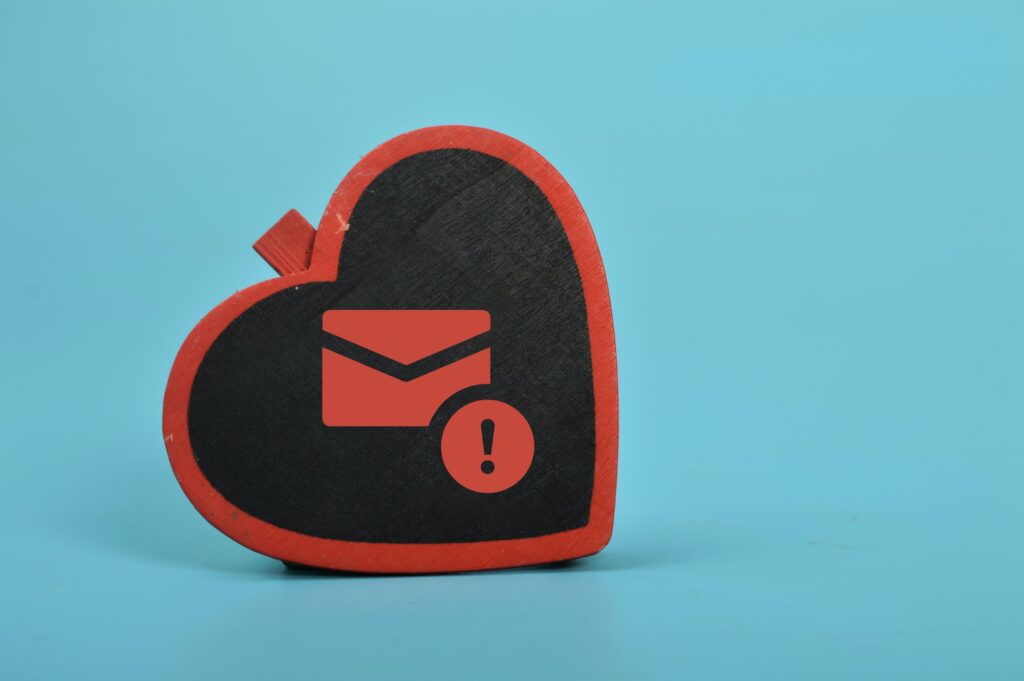Catfish or Catfished in Dating a Growing Problem
Catfishing is a term that was originally used to describe individuals who create fake identities online, usually with the intention of deceiving others for their own benefit. The term has since been extended to include individuals who use these fake identities in online dating, making it a growing concern for those looking for love. In this article, we’ll explore the different ways that catfishing can occur in online dating and what you can do to protect yourself.
Dating Danger – 20 Dating Red Flags that Signal you’re not Relationship Ready Yet!
Catfishing in online dating typically involves a person creating a fake profile, complete with photos and information about themselves, in order to trick someone into thinking they’re someone they’re not. This can be done for a variety of reasons, including financial gain, emotional manipulation or simply to harm the other person. In some cases, the catfisher might be using a real person’s photos and information, but presenting themselves as that person in a completely different way.
One of the biggest dangers of catfishing in online dating is the emotional toll it can take on those who fall victim to it. People who have been catfished often feel embarrassed, violated and even traumatized by the experience. They may also experience a loss of trust in others and a reluctance to pursue relationships in the future.
Ultimate Top 100 Online Dating Opening lines
Another danger of catfishing in online dating is the risk of physical harm. Some catfishers may use their fake identities to lure people into meeting them in person and there’s always the risk that the meeting could turn dangerous. This is particularly concerning for women, who are often targeted by catfishers looking to take advantage of them.
Ultimate Sugar Daddy Sites That will blow your mind for 2024

Protect yourself from catfishing in online dating
Do your research Before meeting someone in person, make sure to do your research. Check their social media profiles and do a reverse image search on the photos they’ve shared to make sure they’re real. If something seems off, trust your gut and move on.
NATO “No Action Talk Only” Dating Trend Insights and Meaning 2024
Take things slow Don’t jump into a relationship too quickly. Get to know the person through online messaging and phone calls before meeting in person. If they seem too eager to meet you right away, it could be a red flag.T
op 20 Unique Leeds Date Ideas – Creative, Romantic, and Fun Outings for Couples Dating
Meet in a public place When you do finally meet in person, make sure it’s in a public place. This will help to ensure your safety and will give you an opportunity to observe their behavior and make sure they’re who they say they are.
Devastated after Relationship Break Up No1 Guide
Keep your personal information private Don’t share personal information, such as your full name, address or phone number with someone you’ve just met online. Wait until you’re more comfortable with the person and have built a rapport before sharing more personal details.
Report any suspicious activity If you suspect that someone you’re communicating with is a catfisher, report them to the dating website or app you’re using. The more reports a site receives about a particular user, the more likely they are to take action and remove the user from the platform.
Ultimate 100 Top Texting Slang Words and Meanings used on Dating Apps 2024
Be wary of someone who won’t video chat If the person you’re talking to refuses to video chat with you or won’t show their face on a call, this could be a red flag. A genuine person should have no issue showing their face, and if they won’t, it may be because they’re hiding something.
Check for consistency in their stories If the person you’re talking to tells you a story that doesn’t add up or changes over time, this could be a sign that they’re not being truthful. Pay close attention to the details they provide and look for inconsistencies.
Look for inconsistencies in their photos If the person you’re talking to has a lot of photos on their profile, take a closer look at them. Are they all recent? Do they look like they were taken in different places and at different times? If so, this could be a sign that they’ve taken photos from other people and are using them to create their fake identity.
Inspiring Online Dating in your 50’s and beyond
Avoid sending money If someone you’re talking to online starts asking you for money, this is a major red flag. No genuine person will ask for money from someone they’ve just met online and if they do, it’s almost certain that they’re a catfisher.
Wow! New Years Eve Dating Ideas bring in 2024
Use a background check service If you’re serious about meeting someone you’ve met online, consider using a background check service to verify their identity. These services can help you find out if the person you’re talking to has a criminal history, is married or has a history of catfishing.
Be cautious with personal information Be wary of someone who is asking for personal information, such as your Social Security number, bank information or passwords. This information could be used for identity theft or other malicious purposes.
Be patient Finally, be patient when it comes to online dating. Don’t rush into a relationship or meeting someone in person too quickly. Take your time getting to know the person and if something doesn’t feel right, don’t be afraid to walk away.
#12 Best Sugar Daddy Elite Dating Sites
Catfishing in online dating is a serious issue that can have serious consequences. By being aware of the warning signs and taking steps to protect yourself, you can increase your chances of having a safe and successful online dating experience. Remember to trust your instincts, be patient and always be mindful of your personal safety when communicating with someone online.
Expert tips on thoughtful Christmas gifts whilst dating in 2023
















Always do a video chat before meeting if they decline you have your answer
old photos on dating apps 🙁
So many at this now on the popular apps like Tinder Bumble and match etc
I’ve been caught out myself with this appears to be quite common now on the like of tinder and bumble users using old photos or other peoples.